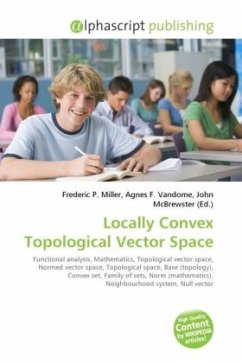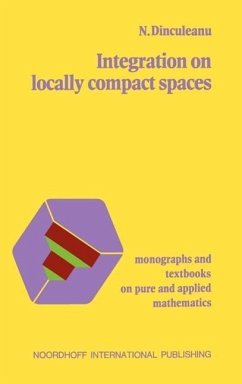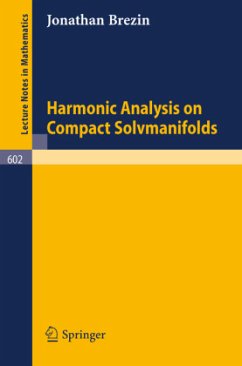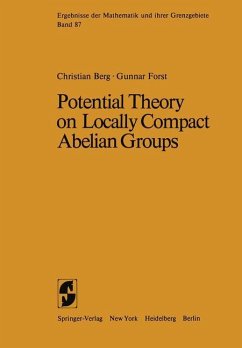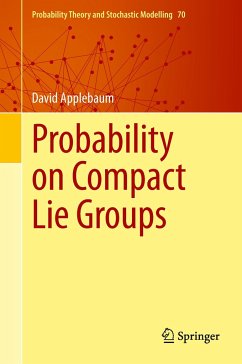
Compact Space
Versandkostenfrei!
Versandfertig in 6-10 Tagen
23,99 €
inkl. MwSt.

PAYBACK Punkte
12 °P sammeln!
In mathematics, more specifically general topology and metric topology, a compact space is an abstract mathematical space in which, intuitively, whenever one takes an infinite number of "steps" in the space, eventually one must get arbitrarily close to some other point of the space. Thus a closed and bounded subset (such as a closed interval or rectangle) of a Euclidean space is compact because ultimately one's steps are forced to "bunch up" near a point of the set, a result known as the Bolzano Weierstrass theorem, whereas Euclidean space itself is not compact because one can take infinitely ...
In mathematics, more specifically general topology and metric topology, a compact space is an abstract mathematical space in which, intuitively, whenever one takes an infinite number of "steps" in the space, eventually one must get arbitrarily close to some other point of the space. Thus a closed and bounded subset (such as a closed interval or rectangle) of a Euclidean space is compact because ultimately one's steps are forced to "bunch up" near a point of the set, a result known as the Bolzano Weierstrass theorem, whereas Euclidean space itself is not compact because one can take infinitely many equal steps in any given direction without ever getting very close to any other point of the space. Apart from closed and bounded subsets of Euclidean space, typical examples of compact spaces include spaces consisting not of geometrical points but of functions. The term compact was introduced into mathematics by Maurice Fréchet in 1906 as a distillation of this concept.






